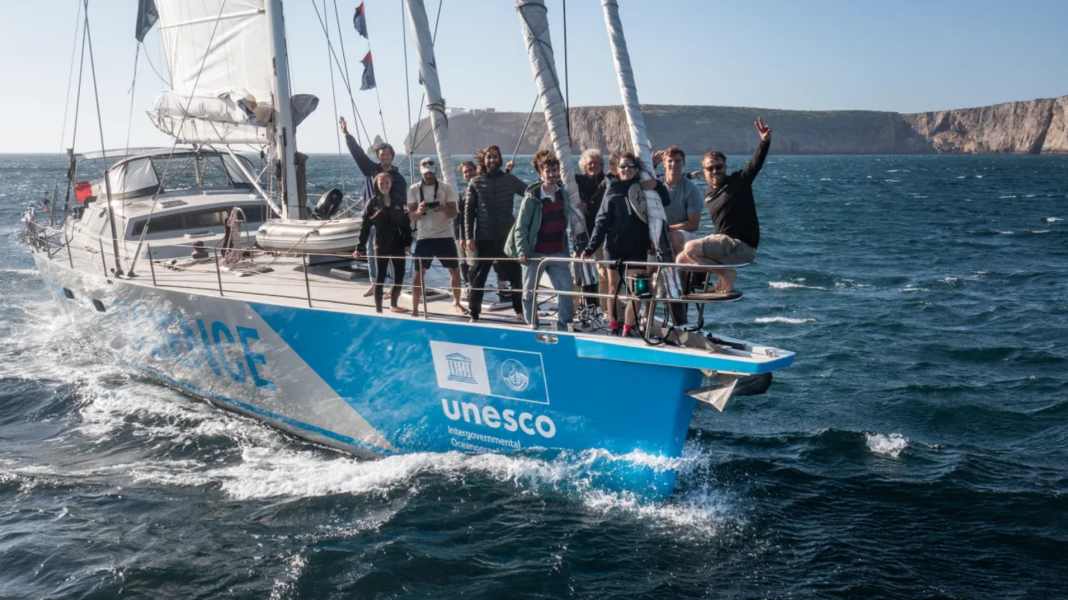
Representatives from 175 countries discussed key topics such as the fight against plastic waste, the removal of munitions, the protection of the high seas and regulations on deep-sea mining. Federal Environment Minister Carsten Schneider (SPD) expressed his satisfaction with the results: "This conference has made significant progress in marine protection, despite the difficult geopolitical situation." However, the USA did not send a delegation to the conference, which was criticised by many participants.
Alliance against plastic waste
One of the main focuses of the conference was on combating marine pollution caused by plastic waste. As many as 95 countries joined together to form an alliance calling for the production of primary plastics to be restricted. This broad coalition emphasises the growing global concern about the impact of plastic on marine ecosystems.
The Alliance also spoke out in favour of mandatory reporting on the production, import and export of these substances in order to ensure better control and transparency. Florian Titze from WWF Germany commented on the development: "The content outlined here is a good start and at the same time the absolute minimum to effectively combat plastic pollution." He emphasised the need to now swiftly translate these agreements into concrete measures.
Boris Herrmann's Malizia team, known for its commitment to marine conservation, also expressed its support: "The alliance against plastic waste is an important step. Now concrete measures must follow to protect our oceans from further pollution." The team's sailors are experiencing the devastating effects of plastic waste on the oceans first-hand and are actively campaigning for solutions themselves, in future, particularly with its new research vessel, the "Malizia Explorer".
German initiative on old munitions
Another significant step forward at the conference was the action initiated by Germany to Removal of old munitions in the Baltic and North Sea. Germany wants to set up a team of experts together with France to localise and remove the dangerous remains of past wars. The danger posed by old munitions and decaying ordnance at the bottom of the oceans is considerable.
The problem of munitions waste has long been underestimated, but is gaining increasing attention. Experts estimate that around 1.6 million tonnes of conventional munitions and around 170,000 tonnes of chemical warfare agents lie on the seabed in the German North Sea and Baltic Sea alone. These not only pose a danger to shipping and fishing, but also release toxic substances through corrosion that damage the marine ecosystem.
In addition to this initiative, Germany announced Invest 100 million euros in the restoration of salt marshes, seagrass beds and algae forests. This measure aims to increase the oceans' natural ability to store CO2 and thus slow down climate change. Environmental experts welcomed the holistic approach, which includes both the removal of contaminated sites and the strengthening of natural carbon sinks.
Progress on the high seas protection agreement
There was at least some movement at the conference with regard to the High Seas Convention. For the first time, it is intended to create regulations for the use and protection of the high seas, which make up around 60 to 70 per cent of the oceans. However, in order for the agreement, which was formulated two years ago, to come into force, it must be ratified by at least 60 states. More than a dozen other countries have now ratified the agreement in Nice, meaning that the required number could soon be reached.
The organisation OceanCare sees this as "encouraging progress". However, no agreement has yet been reached on funding, with poorer countries in particular demanding commitments. The German Ocean Foundation welcomed the developments: "The High Seas Agreement is a milestone for global marine conservation. The ratifications in Nice bring us a big step closer to our goal."
Differences in deep-sea mining
Differences continued to emerge on the topic of deep sea mining. Germany and 36 other countries are seeking a precautionary pause in deep-sea mining projects. The issue was given new urgency by the USA's plans to pursue deep-sea mining in international waters. 24 countries, including Germany, spoke out strongly against such plans and emphasised that deep-sea resources outside national waters are the common heritage of mankind under international law.
Implementation of commitments required
Environmental organisations welcome the results of the conference, but are now calling for the commitments made to be implemented quickly. The concrete measures must be implemented in the coming months and years in order to achieve the goals of marine protection. In particular, the focus is on the ratification of the Convention on the Protection of the High Seas by further states and the implementation of the Alliance against Plastic Waste.
Reading tip:

Pascal Schürmann
Editor YACHT
Pascal Schürmann joined YACHT in Hamburg in 2001. As head of copywriting and head of the editorial team, he makes sure that all articles make it into the magazine on time and that they are both informative and entertaining to read. He was born in the Bergisches Land region near Cologne. He learned how to handle the tiller and sheet as a teenager in a touring dinghy on the Sneeker Meer and on a tall ship on the IJsselmeer. During and after his studies, he sailed on the Baltic Sea and in the Mediterranean. As a trained business journalist, he is also responsible for boat financing and yacht insurance reports at YACHT, but also has a soft spot for blue water topics.

